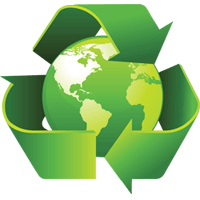
A thematic session on “Sustainable lifestyle towards Enhancing Resource Efficiency and Circular Economy” was hosted at the ongoing World Environment Day celebrations. The session was organised jointly by the Ministry of Environment, Forest and Climate Change (MoEF&CC) and Deutsche Gesellschaft für Internationale Zusammenarbeit (GIZ) on June 2, 2018. The session brought together policy-makers, regulators, international organisations, businesses, civil society and academia for a discussion on the pathways and key elements for shifting consumption patterns and lifestyles towards sustainable alternatives.
Different policy options for achieving a resource efficient society with low ecological footprint and better governance mechanisms were discussed. It was highlighted that people’s values, expectations and aspirations for the future must be taken into account for developing strategies for consumer engagements. The role of technology, success stories from Indian experiences and inclusive policy frameworks with alternatives were also highlighted as important for the shift towards a resource efficient, circular and sustainable economy. Awareness generation for all stakeholders was identified as the most critical of all measures. Without an informed appreciation of the challenge and problems associated with high consumption lifestyles and increased plastics waste, the efforts towards achieving a sustainable society would not be effective.
The sessions attempted to identify policy options for a resource efficient society, good governance, low ecological footprint and highlight pathways for shifting consumption patterns and lifestyles towards more sustainable alternatives and helped in identifying key elements essential for developing approaches and policies on sustainable lifestyles considering people’s perceptions of sustainability, their values and expectations for the future. It also enhanced awareness of sustainable lifestyles, and identified mechanisms for a concerted action which are needed to be taken by relevant stakeholders.
Secretary, Ministry of Steel, Dr. Aruna Sharma, who chaired the session, talked about the idea of waste to wealth, which creates a win-win situation for all and also opined that plastic cannot be banned fully, but its size can be a critical component to maintain and that is why it is important to understand that plastic disposal is a bigger issue. Delivering the special remarks, Central Pollution Control Board Chairman, Mr. S.P S Parihar pointed out that material consumption in India is growing since 2010 and behavioural change is the toughest part. He also gave examples of Swacch Bharat mission of Madhya Pradesh where students are visiting households to train the adults.
National Geographic Network representative Ms. Lillygol Sedaghat talked about the best practices in Taiwan, where several steps have been adopted for attaining sustainable livelihood and an efficient waste management policy. She also gave example of civil movement and homemakers united foundation, NEIHU Taiwan, which are motivating people in this direction. She pointed out that a sense of connectivity towards nature as its own family is the key to reach sustainability goals too. Mr. Pravin Mallik from Tetra Pack emphasized on the need to integrate bio-economy and circular economy and talked about formation of March Action Alliance for recycled packaging among Tetra Pack and other 10 companies.
